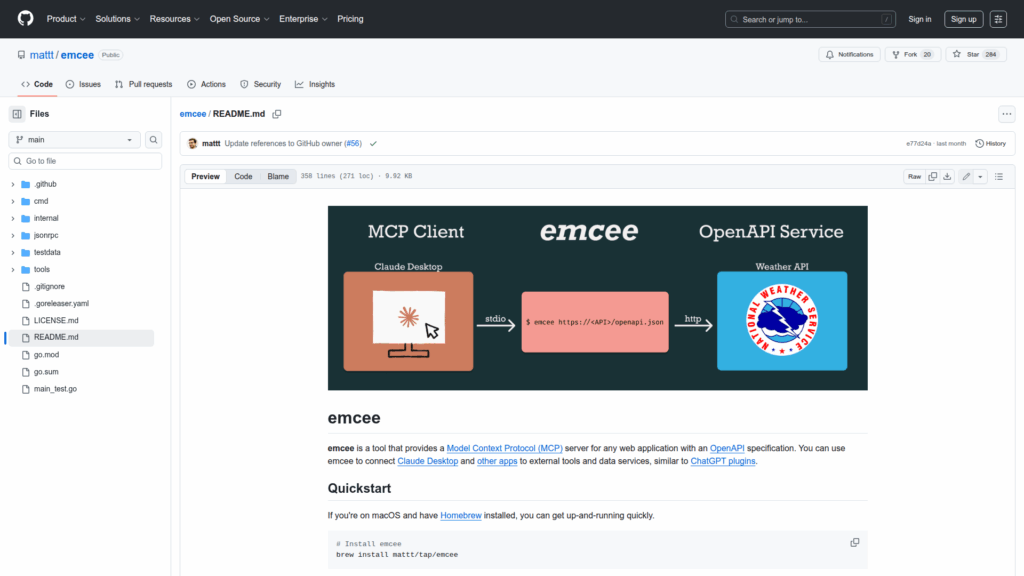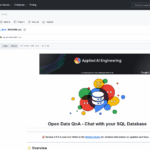Basic Information
emcee is a command-line tool that provides a Model Context Protocol (MCP) server for any web application that exposes an OpenAPI specification. It is designed to let developers expose API endpoints as MCP tools so MCP-capable clients like Claude Desktop can discover and call those APIs similarly to ChatGPT plugins. emcee runs as a stdio process using JSON-RPC 2.0, accepts an OpenAPI spec path or URL, and can be installed via Homebrew, Docker, an installer script, or built from source with Go. It includes options for authentication, request retries, rate limiting, timeouts, and logging. emcee also supports transforming OpenAPI specifications before serving them and intentionally focuses on providing MCP tool capabilities rather than higher-level resources or sampling features.








